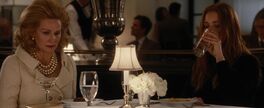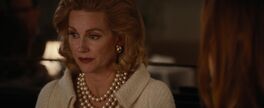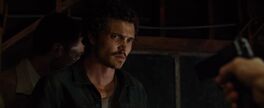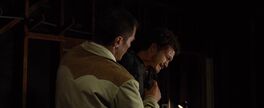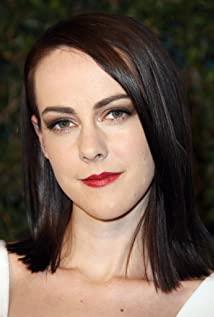Movie is mainly about the reverberation of an abandoned relationship in the life of two people. How a dead relationship shows what your life is all about, and how it keeps chasing you. Such a story is somewhat out of tune with today's view of feelings, and even the view of life. It's also why many people may not understand the foundation on which the film's story is built.
"No matter how sad the past is, is it worth taking revenge? Even if the protagonist doesn't want to take revenge, but his way of revenge is to send a book to his ex-wife? Well, he vaguely expressed in the book that the relationship caused him He also killed the villain who took everything from him in the book. What did he think of sending the book to the heroine? After 19 years, I still can't let go of what happened (you)? Well, this book Finally succeeded in arousing the female lead's interest, the female lead asked him to meet, but he didn't go to the appointment?" In short, compared with the cruelty, anger, and deep trauma of the highly dramatic novel plot in the movie, it corresponds to the male lead and female lead. The real life line seems too bland. On the surface, although the male protagonist was hurt by the female protagonist at the beginning, it seems that he will not be able to let go after 20 years. Then since the male protagonist was hurt badly, he should do something in real life, but he didn't do anything except sending books and breaking appointments. The female protagonist is also very strange. After reading the book, she feels deeply disturbed again and again, and she actually allows the male protagonist to achieve revenge with a novel. Shouldn't their emotional entanglement, revenge and regret be expressed in more dramatic and conflicting reality?
However, the dramatic conflict and emotional expression of this film only occur on the "virtual" level of the character's character and heart. It materializes the male protagonist's mental journey with the story line of the novel, so that the male protagonist's mental journey constantly intersects with the plight of the female protagonist in reality. The male protagonist wants to say to the female protagonist with the novel: "Look at what cruel things you have done to me." And the reason why this revenge formed purely by emotional accusation can be achieved is because the traumatic event in the past also happened to the female protagonist. echoes and repeats in his life. The things of the past happened in the past, but whether it is the outcast or the outcast, their life and emotional predicament always repeats the same problem.
The heroine who wants everything and is never happy
The heroine is set as a petty bourgeoisie who was born in the middle class or above and loves art. The portrayal of the heroine in the film is mainly through her mother-daughter relationship with her mother. The heroine used to look down on her native family, a typical conservative white family above the middle class in the United States, Catholic, anti-gay, racist, pragmatic, and a bit snobby. In the eyes of the heroine, the hostess' mother is a typical figure who represents all the negative characteristics of this type of family. The heroine thinks that she is completely different from her mother, but in fact she is her mother. The heroine's mother had already made her and the hero's problems right from the very beginning. She thought she didn't care about career success, so-called planning and goals, or more essentially, money. But in fact she cares, and even worse than her mother, she wants it all. She wants the social status and material security of successful people, and she also wants deep emotional communication. So in the words of the male protagonist, there is always an inexplicable sadness in her eyes. The female protagonist can't sleep at night, so she was nicknamed "Nocturnal Animal" by the male protagonist. When the male protagonist can't satisfy her professionalism, their relationship is over. But the problem is that the end of this relationship is not really no feelings, but the heroine's urgent need for other things overwhelms her feelings for the male lead. As a Catholic, she even had a miscarriage to end the marriage. After that, she married a rich and handsome man, but when the time line came to the present moment, the cold marriage, cheating husband and on the verge of bankruptcy brought her back to the old problem. She is not happy. This is also why the hero's novel can hit her, because she now realizes what she has lost. So she contacted the male protagonist and dressed up to meet the male protagonist.
The heroine always swings between the two personalities and two lives represented by the former and the current one. The heroine is a typical modern personality. One of the typical characteristics of modern personality is desire-driven, so-called living in the moment. Pursue what you need most at the moment, keep grabbing, and keep throwing away. There is only need, not true love. In the movie, the heroine was asked twice: "Do you love me (him)?" Once on the eve of the breakup, the hero asked the heroine whether she loved him or not, and the heroine told him. The other time was when the heroine's friend in the current timeline asked her if she loved her husband, and she reluctantly changed the subject. In the former situation, the heroine's os is "what can I do with love", and the latter is "what can I do without love". There is actually no solid existence in the heroine's heart, everything changes with the needs of the moment. Her friends all admonished her not to be too harsh on herself, not to pursue perfection too much, as if to persuade a successful person not to work too hard so as not to wear himself out. But her harshness and perfectionism are actually always looking at what she doesn't have, or what she has lost, a spiritual void that can never be filled. I feel that the author is both sarcastic and sympathetic towards such people. Even the heroine herself said: "I shouldn't be unhappy, I already have everything, so if I'm not happy, I'm not too grateful." Compared with the modernity of the heroine, the
"fragile" male
protagonist, the male protagonist It can be said to be a "pre-modern" person. Indulging in the pain of past feelings, brewing this trauma into a novel for 20 years, and using art to preserve the memories, this is absolutely the opposite of the modern people who emphasize forward-looking. The film emphasizes that the character of the male protagonist is fragile. The heroine commented on him like this, the heroine's mother commented on him like this, and he finally admitted it himself, and brutally took out his fragile qualities in the novel and displayed it there. But this fragility goes hand-in-hand with his sensitivity, kindness, and insistence on ideals (whether writing or love). He is fragile, but strong. He also finally uses what he believes in (the ideal and love of writing) to complete the revenge on the heroine who once abandoned them.
About the screen
The picture is very beautiful, especially the scene of the heroine's current life, the director's fashion godfather's taste and skill are vividly reflected. But through these scenes, the director is mocking the class and group he belongs to. The characters in the movie directly said, "The modern art exhibition they hold is garbage", "Compared to the real world, our (fake) world is better." This world is fake, and the people in it also I know it's fake, but I still enjoy it. I don't know how Tom Ford and Guo Jingming are linked, but the baseline of attitude towards materialism is too far off, let alone taste.
View more about Nocturnal Animals reviews



